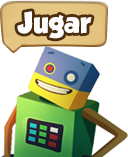
Computer science tops the list of important subjects taught in schools, and is seen as among the most favorable subjects by students themselves. Computer science education enhances logical thinking and problem solving, as well as promoting creativity and enhancing overall cognitive function. Statistics show that computer science jobs have a high number of current vacancies and a projected future growth rate that is well above average.
Hour of Code is a major event organized by Code.org, whose mission is to spread programming education to people of all ages, from 4 to 104 years. The no-experience-necessary movement has attracted millions of users in more than 180 countries worldwide. There have been numerous movements and calls for the integration of computer science in and secondary education by parents and educators. The Hour of Code initiative has earned a huge amount of support and collaboration, particularly from major names in today’s IT industry like Apple, Amazon, and Microsoft.
Breaking down activities into simple steps that take about an hour to accomplish is the foundation of the success of the Hour of Code initiative. The site’s activities page is populated with a variety of challenges and crash coding courses. Activities are self-guided from the beginning, so students can progress at their own pace until they earn their certificate of completion at the end of the activity. The website sums the initiative up perfectly: “All you have to do is try our current tutorials, pick the tutorial you want, and pick an hour — we take care of the rest. We also have options for every age and experience-level, from kindergarten and up.”
A single hour is enough to learn a new computer science skill while completing a fun and creative activity. The initiative’s success is tied to its ability to reach people and engage them in its activities. If a fraction of participants take an interest in the field and decide to complete a course in programming, then the initiative will have served its purpose.
RoboGarden has three tutorials (Beginner, Intermediate and Advanced) and each has six missions which has been contributed to Hour of Code. These missions are sequential and require no prerequisites. They feature unique worlds and interactive graphics that make the experience very special. Thanks to statistics provided by Hour of Code, we know that students and educators have both taken an interest in our activities.

Educators want to be better at teaching computer science subjects even if they have no computer science background. The conversion rate of these educates who are eager to learn more is very promising. Once they have completed Hour of Code activities, many teachers have decided to join their students in taking on more courses so they may continue learning.
The Hour of Code initiative accepts new activity submissions throughout the year. Its flagship event is held in early December.
